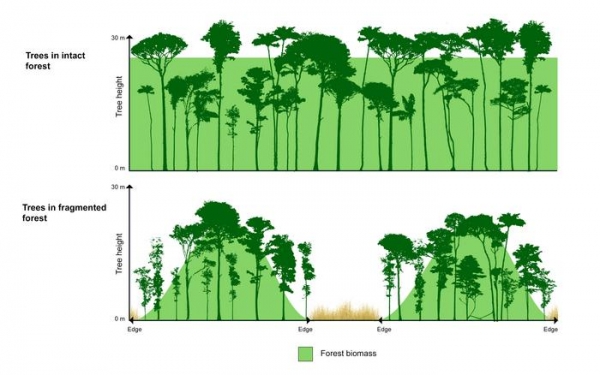Makueni County, a corner of southern Kenya that’s home to nearly a million people, is a land of extremes. Nine months a year, Makueni is a hardened, sun-scorched place where crops struggle and plumes of orange dust billow from dirt roads.
articles
Warmest Arctic Summer on Record is Evidence of Accelerating Climate Change
NOAA’s 2023 Arctic Report Card documents new records showing that human-caused warming of the air, ocean and land is affecting people, ecosystems and communities across the Arctic region, which is heating up faster than any other part of the world.
Twenty-Year Study Confirms California Forests Are Healthier When Burned — Or Thinned
A 20-year experiment in the Sierra Nevada confirms that different forest management techniques — prescribed burning, restoration thinning or a combination of both — are effective at reducing the risk of catastrophic wildfire in California.
Forest Fragmentation is Changing the Shape of Amazonian Trees
Using laser scanning, researchers at the University of Helsinki have mapped out how the fragmentation of forests affects tree shape in the rainforests of Brazil.
Researchers From Charité and McGill University Quantify Association Between Helicobacter Pylori and Alzheimer’s Disease
Infection with the stomach bacterium Helicobacter pylori could increase the risk of developing Alzheimer’s disease: In people over the age of 50, the risk following a symptomatic infection can be an average of 11 percent higher, and even more about ten years after the infection, at 24 percent greater risk.
National Policy Aimed At Reducing U.S. Greenhouse Gases Also Would Improve Water Quality
A climate policy that raises the price of carbon-intensive products across the entire U.S. economy would yield a side benefit of reducing nitrate groundwater contamination throughout the Mississippi River Basin.










